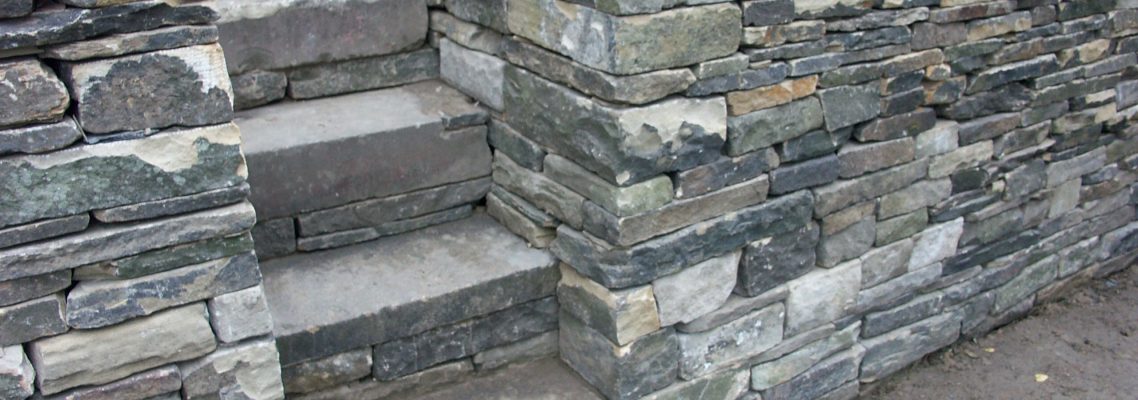The Art of Stone Walling
September 12, 2022

The art of stonewalling carries a range of exciting and varied possibilities. Besides constructing walls, stone wallers can also apply their talents in creating distinctive artistic and architectural features. They can also work with other crafts in the building conservation industry. Whether young or old, stonewalling is a career that will challenge you and your skills.
Dry stone walling
Dry stone walling is a very durable building technique. It is made of flat layers of stones that are packed tightly together. Large stones are placed along the length of the wall, and smaller stones are placed in between. The aim is to have a few gaps between the stones. Dry stone walling is complicated and takes a long time to complete.
Dry stone walling is an excellent option for homes, businesses, and other structures. Its durability, stability, and strength make it a popular building material. A dry stone wall should also have a batter, the ratio of rising to run. In general, the range is 1:6 to 1:10.
Techniques
When it comes to stonewalling, there are several techniques to use. One of the most important of these is ensuring that all stones are aligned and set perpendicular to one another. This can be achieved by using string lines that run between adjacent stones. The final wall should be smooth if the stones are aligned properly. If this is not done, it will result in an uneven wall.
Flat stones make it easier to build walls, but irregularly shaped stones can be tricky. If your stones aren’t flat and level, they’ll slide into the face of your wall, putting undue stress on it and leading to eventual collapse. If your stones aren’t level, you can fix them with shims that have wedge-shaped bottoms. These shims can be pinned inside the wall so they don’t work their way out.
Styles
There are several styles of stonewalling. Some are used in a specific area, such as a garden. The most common is the placed wall, also called a rip-rap wall. This type of walling consists of large stones dumped or set in place using a tractor or other mechanical device. The stones are typically large enough to prevent erosion, and they are, therefore, well-suited for coastal or eroding areas.
Stone walls can be paired with other materials, including brick and metal. They are often used in a rustic or farmhouse setting, but a stone wall can add a modern touch to a room. Choosing an appropriate colour for a stone wall is crucial. Choose a neutral colour and paint the sections lightly to create a cohesive look. This will eliminate some of the natural textural charms but adds visual appeal.
Certification
Stonewall certification is a process in which an individual achieves a certain proficiency in stonewalling. The rigorous tests, and the candidates must be familiar with structural principles. The test is graded on a pass/fail basis. The test involves constructing a section of a dry stone wall within 7 hours. At each level, the wall’s quality and volume and the features’ complexity are assessed. The structural integrity of the wall is also assessed. Hence, working efficiently is vital to passing the test.
There are four levels of certification available. All levels of the training are aligned with DSWA UK structural principles, and accredited examiners conduct the examinations. These courses are offered bi-annually by the Stone Trust and are aimed at professionals with at least an intermediate level of experience. To register for a certification test, candidates must submit an application form at least 6 weeks before the proposed test date. They must also include payment, which can be made by cheque or PayPal. For overseas candidates, choosing the Overs registration option when using PayPal is important.
Cost
If you are planning to build a stone wall, the cost may be higher than you expect. The materials alone can be costly, and the labour for installing stone walls can cost anywhere from $10 to $15 per square foot. You should also consider the costs of a land surveyor and any drainage features that may be built into the wall. A land surveyor can help you avoid legal disputes and save money on your stone wall project.
The process of building a stone wall requires some skill and experience. If you cannot find a stone mason in your area, you may want to hire a contractor. The labour costs will be about the same whether you hire a contractor or a mason. However, when building stone and brick walls yourself, you may compromise the wall’s quality. Therefore, it is recommended to hire a professional mason to ensure a beautiful stone wall.
Connect us for more details: Stone Edge Landscapes
